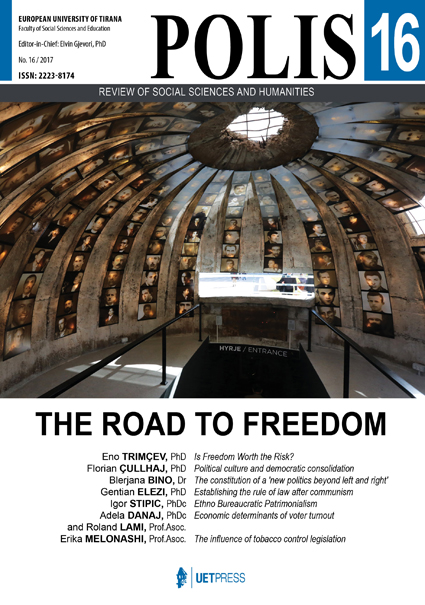Establishing the rule of law after communism: a comparative approach
Establishing the rule of law after communism: a comparative approach
Author(s): Elezi GentianSubject(s): Politics / Political Sciences, Law, Constitution, Jurisprudence, Constitutional Law, Criminal Law, Civil Law, Developing nations, Politics and law, Post-Communist Transformation, Law on Economics
Published by: Shtëpia botuese “UET Press”
Keywords: rule of law; post-communism; democratic transition; institutionalisation; Albania;
Summary/Abstract: Rule of law is one of the main pillars of democratic systems. The post-communist countries of Central and Eastern Europe inherited deleterious legacies regarding rule of law, which made their path to democratisation fraught with difficulties. However, it remains unclear as to how communist judicial legacies and post-communist reforms interact to affect the establishment of the rule of law. Therefore, the purpose of this article is to examine the factors determining the establishment of rule of law in postcommunist countries with a particular focus on Albania. The theoretical framework used is the ‘four-factor explanatory model’ of post-communist trajectories, focusing on (i) pre-communist experience and cultural patterns, (ii) communist regime legacies, (iii) elite strategic choices in early transition, and (iv) external influence. By analysing the impact of these factors in the Albanian case, the article aims to clarify the mechanisms that affect the establishment of the rule of law in countries similar to Albania.
Journal: Polis
- Issue Year: 2017
- Issue No: 16
- Page Range: 65-89
- Page Count: 25
- Language: English

